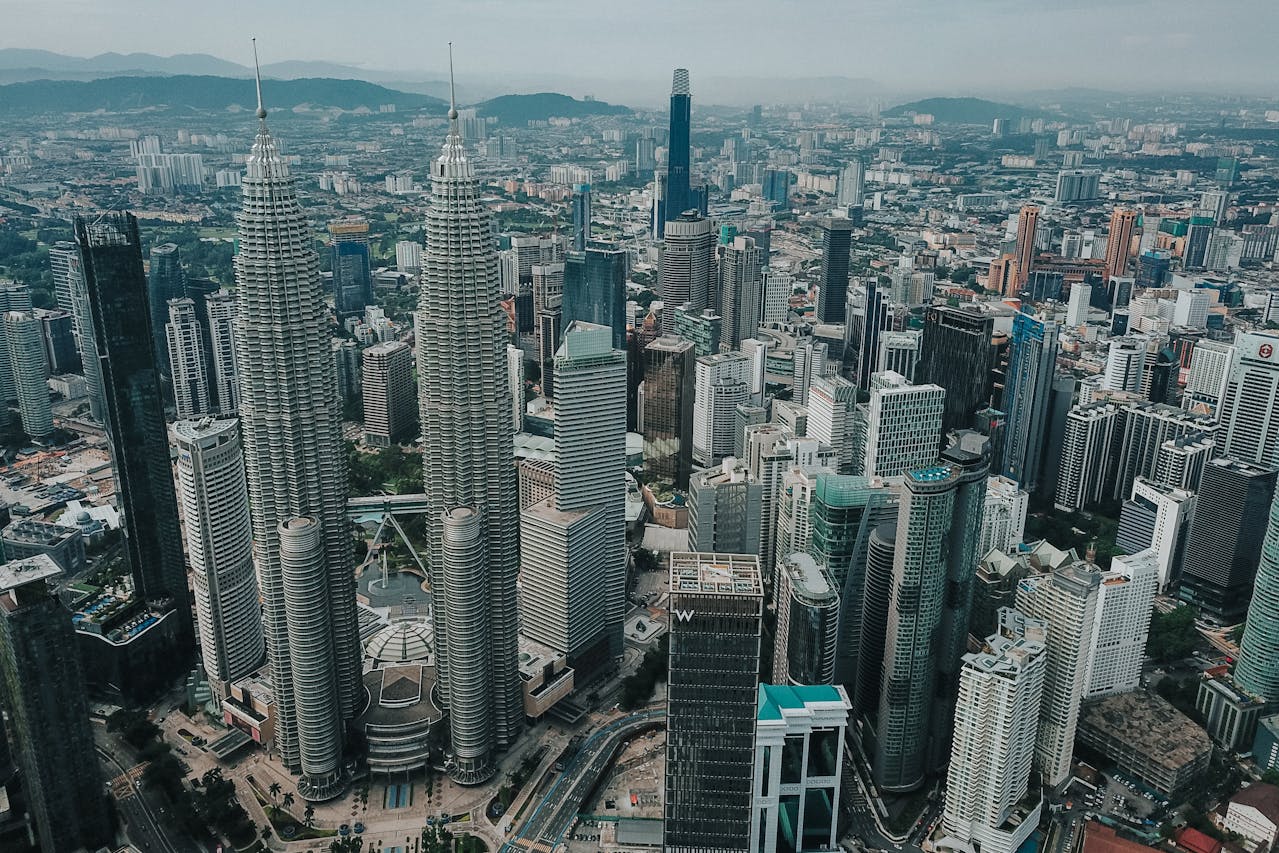In today’s world, infrastructure projects are always changing. We all wonder: How can we really know how geopolitical risks affect EPC contracts? As we work on big international Engineering, Procurement, and Construction (IEPC) projects, it’s key to understand the risks.
Risks come from political instability, economic changes, and social issues. With good risk assessment, we can make our construction investments better. This way, we can keep our projects on track, even when unexpected problems arise.
This article looks at what affects geopolitical risks. It shows why we need a complete approach to managing risks. We’ll see how knowing the local situation is important.
We’ll also look at real examples of what happens when we ignore these risks. By changing how we manage risks, we can make our infrastructure projects stronger and more successful.
Key Takeaways
- Understanding geopolitical risks is essential for the success of EPC contracts.
- Effective risk assessment can enhance project performance significantly.
- Political instability and local socio-economic conditions greatly affect construction investments.
- Successful engagement with stakeholders improves risk identification and management.
- Comprehensive risk mitigation strategies can substantially lower the impact of identified risks.

Understanding Geopolitical Risks in EPC Contracts
When we deal with EPC agreements, knowing about geopolitical risks is key. It’s very important to assess risks. This helps us make smart choices for our projects.
By looking at risks, we can spot problems early. Then, we can plan how to avoid them.
The Importance of Geopolitical Risk Assessment
Doing a good risk assessment is vital for projects in new markets. About 70% of EPC projects face supply chain problems because of politics. This shows we need a detailed plan.
Good risk management can lower the chance of cost increases and delays. Without it, money risks can be 10-20% of the budget. This can hurt profits.
Types of Geopolitical Risks Encountered in Contracts
There are many kinds of geopolitical risks in EPC contracts. These include:
- Commercial losses because of local market changes
- Political problems that mess up project schedules
- Changes in rules that affect contracts
These risks need careful thought, more so in new markets. By working together and checking suppliers, we can lower risks a lot. Looking at things like financial health and past work can cut risks by about 40%.
Factors Influencing Geopolitical Risks
It’s key to know what affects geopolitical risks for EPC projects in emerging markets. Things like country risk and political stability greatly impact projects. They affect everything from getting credit to if a project can even happen. As things change, we need to look at these closely to avoid risks.
Country Risk in Emerging Markets
Emerging markets face high country risk because of economic and policy issues. Companies doing emerging market contracts must think about these risks. They can make it hard to get credit and raise costs.
The COVID-19 pandemic showed how vulnerable these markets are. Countries like China and India saw their economies shrink. This made it harder for EPC projects financially. Also, relying on energy imports adds more risk, so we must understand country risk well.
Political Stability and Its Impact on EPC Projects
Political stability is very important for EPC projects. Changes in government or policies can affect costs and if a project can happen. Unstable politics can mess up contracts and cause big financial losses.
Keeping an eye on EPC project factors linked to politics helps us see risks better. Events like 9/11 and the China-USA trade war show how fast things can change and affect projects.
To deal with these complex situations, knowing about country risk and political stability is key. Using risk management and insurance can help us be more ready for these risks. For more on how to handle these risks, check out this resource.

How to Quantify Geopolitical Risks in EPC Contracts
Quantifying risks in EPC contracts needs a clear plan. This plan should look at both the type and amount of risks. A good risk assessment framework helps us deal with geopolitical risks well. We must also watch for signs of trouble early on.
Developing a Comprehensive Risk Assessment Framework
A solid risk management plan starts with a strong framework. This framework should cover all stages of a project. Each stage has its own risks, so we need to be ready for them.
Using tools like the probability-impact matrix helps us see risks clearly. It shows how risks might affect costs, time, and project success.
Key Risk Indicators to Monitor
Keeping an eye on important signs is key to spotting risks. We should watch for:
- Market Volatility: Changes in market prices can affect budgets and timelines.
- Political Stability: Changes in government or rules can cause delays or cost increases.
- Supply Chain Reliability: Disruptions can mess up project schedules.
- Labor Availability: Not enough skilled workers can slow down projects and increase costs.
- Currency Fluctuations: Changes in exchange rates can affect the cost of imports, so we need to plan ahead.
By using a detailed risk framework and watching these signs, we can better handle risks in EPC projects.
| Risk Type | Description | Mitigation Strategies |
|---|---|---|
| Market Volatility | Fluctuating prices can impact project costs. | Implement hedging strategies and regular market reviews. |
| Political Changes | Unstable governments may alter regulations. | Engage local experts for insights and legal compliance. |
| Supply Chain Disruptions | Delays from suppliers can hinder project timelines. | Diversify supplier relationships and invest in logistics. |
| Labor Shortages | Skilled labor scarcity leads to delays and cost overruns. | Invest in workforce training and explore remote labor solutions. |
| Regulatory Compliance | Non-compliance can result in legal penalties. | Conduct thorough risk assessments during project planning. |
Identifying Project-Specific Risks
Understanding regional nuances is key for EPC contractors. Each place has its own challenges that can change project outcomes. These challenges often lead to unexpected problems.
We must look at how these differences show up. And what we can learn from recent field experiences.
Understanding Regional Nuances and Their Implications
Project risks change a lot based on where you are. Local rules, culture, and economy play big roles. They can make a project succeed or fail.
Economic changes can raise costs and delay projects. Knowing the local scene helps us prepare for these risks. This makes projects more likely to succeed.
Case Studies of Failed Projects Due to Geopolitical Risk
Looking at failed projects teaches us a lot. For example, a big energy project was delayed and went over budget because of politics. The team didn’t understand the local situation well.
This made it hard to work with stakeholders and manage resources. The project didn’t meet its goals. This shows we need to assess risks carefully and have strong plans to handle them.

The Role of Insurance in Mitigating Risks
In the world of engineering, procurement, and construction (EPC) contracts, insurance is key. It helps protect projects from unexpected risks. With challenges like worker shortages and money flow problems, good insurance is more important than ever.
Non-Payment Insurance as a Risk Transfer Tool
Non-payment insurance is a big help for contractors and lenders. It covers against defaults, giving lenders a break. This lets them make bigger loans and handle risks better.
This is very important in times of economic uncertainty. When money is tight, it helps ensure payments are made on time.
Political Risk Insurance for Infrastructure Projects
Political risk insurance is a must for keeping infrastructure safe, mainly in unstable markets. It guards against losses from political events like seizure of assets or currency issues. It helps ensure money is recovered and projects run smoothly.
Best Practices for Managing Geopolitical Risks
Managing geopolitical risks well is key for project success in construction and real estate. Using risk management best practices helps us get ready and strong against different uncertainties. Two important strategies are making sure risks are shared in contracts and adapting to local markets.
Incorporating Risk Allocation in Contracts
Putting clear risk allocation in contracts is a basic step. It shows who is responsible for what. This way, risks are known from the start, which helps avoid future problems. Good risk allocation helps meet project goals by:
- Spotting big risks like economic downturns and worker shortages.
- Being clear about who does what in risk management.
- Having plans for unexpected events.
Adapting to Local Market Realities
Adapting to local markets is key to tackling specific challenges. It means knowing about the local workforce, rules, and economy. By pricing contracts right and meeting local needs, we can lower risks in global projects. Important steps for local market adaptation include:
- Checking the local job market to avoid talent gaps.
- Keeping up with local rules and changes that might affect projects.
- Using community ties to build trust and make projects better.
By using these strategies, we can handle the tough parts of geopolitical risks. This makes our projects stronger and more resilient.
| Best Practices | Description |
|---|---|
| Risk Allocation in Contracts | Clearly define and allocate risks to respective parties to ensure responsibilities are understood. |
| Local Market Adaptation | Understand local dynamics to adjust contractual obligations and reduce project risks. |
| Monitoring Key Indicators | Continuously monitor key risk indicators such as workforce availability and economic trends. |
| Engaging Local Stakeholders | Build relationships with local stakeholders to facilitate project success and mitigate risks. |
Conclusion
Navigating the complex world of geopolitical risks is key for managing EPC contracts well, mainly in infrastructure projects. These risks come from many places, like economic downturns and political changes. We must always look for and plan for these risks to protect our investments and keep projects going.
We suggest using strong insurance and checking contracts carefully to share risks fairly. If we don’t manage risks well, it can cost a lot of money. We need to work together and use technology and backup plans to handle EPC project challenges.
Understanding geopolitical risks and their effects on our projects is very important. By always checking our risk plans and changing them as needed, we can face the challenges of infrastructure projects better. For more on managing risks in energy projects, check out our energy project risk management resource.

This Article is Reviewed and Fact Checked by Ann Sarah Mathews
Ann Sarah Mathews is a Key Account Manager and Training Consultant at Rcademy, with a strong background in financial operations, academic administration, and client management. She writes on topics such as finance fundamentals, education workflows, and process optimization, drawing from her experience at organizations like RBS, Edmatters, and Rcademy.


